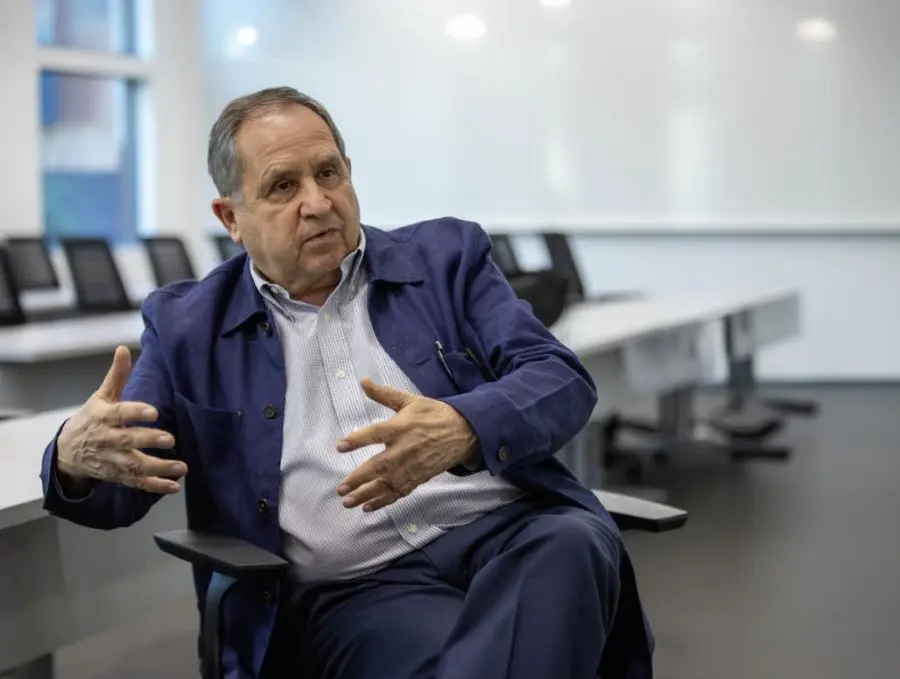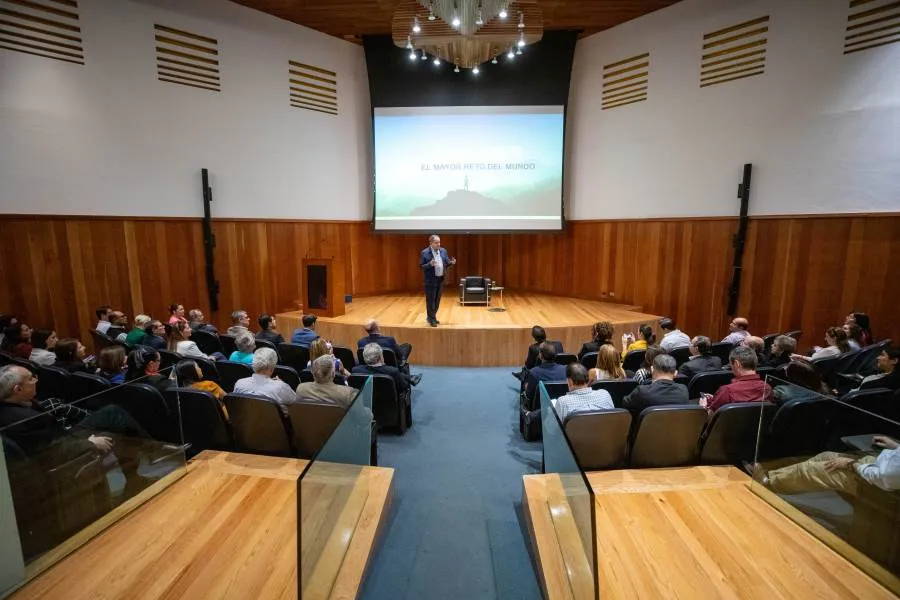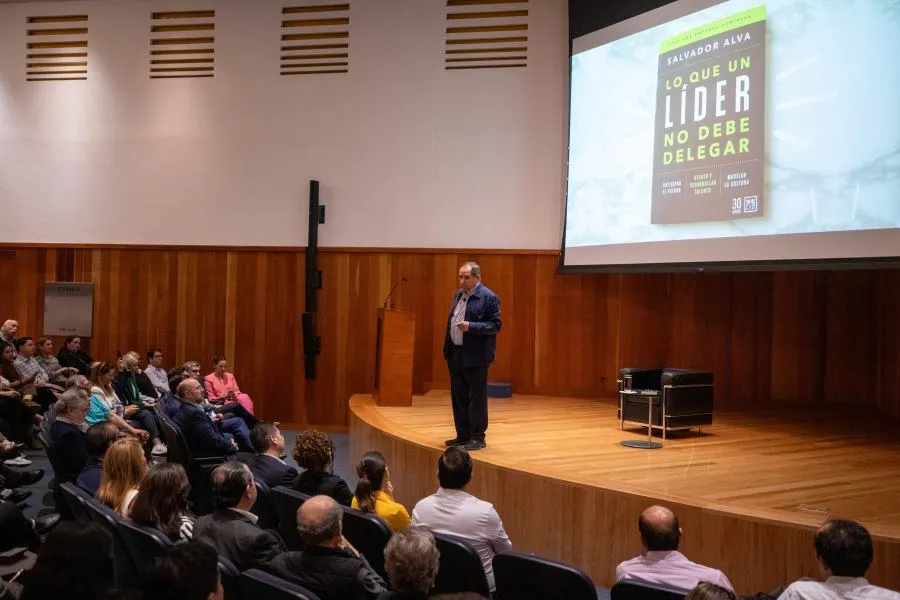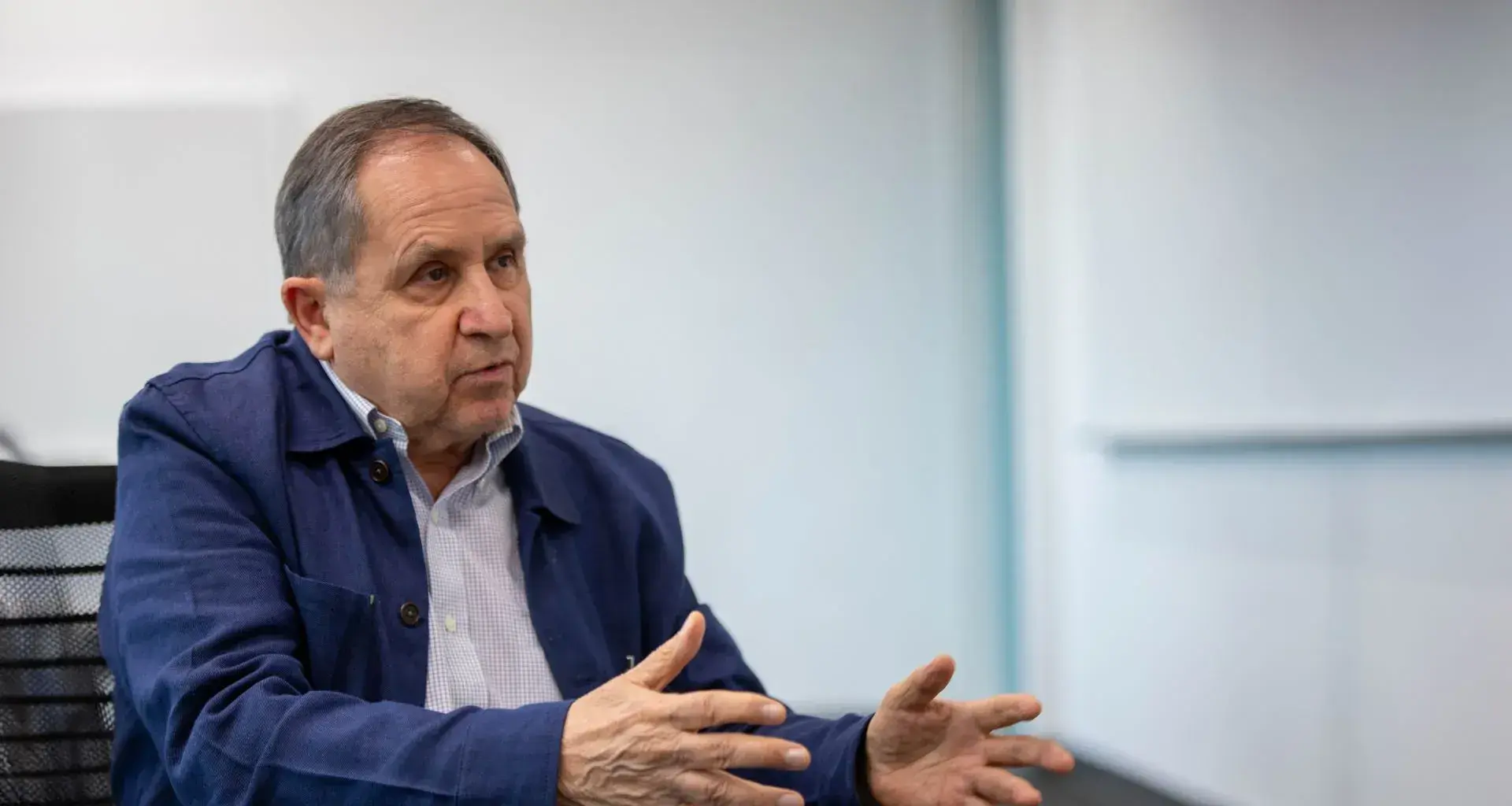People in the audience nod in agreement with the speaker’s diagnosis: companies need to change and cannot continue to do the same things today as they did before.
The speaker is Salvador Alva, former Tec de Monterrey President, who’s presenting his new book: Lo que un líder no debe delegar (What a Leader Should Not Delegate) at the Tec’s EGADE Business School.
In the book, the result of more than 40 years impacting institutions, Alva presents keys to how today’s leaders and companies need to transform themselves.
Alva also spoke with CONECTA before his presentation and outlined the key points of his vision.

Reinventing leadership
In answering the question of whether a leader is born or made, Salvador Alva says, “Leadership is training that requires a lot of discipline.”
“Today more than ever,” he adds, “we need to change the principles that we were taught based on hierarchical leadership, which are proving not to work in the days of the Internet.”
“There can be no change if the leader doesn’t change.”
The current crisis of leadership
Alva argues that the world’s main challenge today is the crisis of leadership, as has been discussed at the World Economic Forum in recent years.
Speaking specifically about companies, he points out that many companies are seriously ill as a result of not having changed their mindset.
“Companies are dying fast, managers are being laid off, and no one knows what’s going on, no one detects the level of illness,” he explains.
In addition, he says, no one understands how to change because we’re all immersed in the same storm.
“We don’t understand the problem because we’re all literally in the problem. It’s like being in the center of a hurricane. You don’t realize you’re in it.”
He points out that what is required is a change of mindset and the discarding of traditional concepts that made organizations work in isolated silos and in a hierarchical manner.
“40 years ago, I started following thinkers who were talking about this: Michael Porter, Michael Hammer, George Steiner, and Jerry Porras.
And I applied a process called VOC: Values, Organization, and Culture,” he says.
“Hierarchical leadership is evolving into inspirational leadership.”
At the current speed of the world
The problem, Alva continues, is that many companies today are slow because of unnecessary bureaucracy and because they are focused more on hierarchy than on meeting customers’ needs.
“Today, the world requires speed and organizations become very slow when you have very hierarchical leadership,” he tells CONECTA.
“What should we do? Reinvent leadership faster. We need to transform organizations.

What a leader should not delegate
Alva continues by saying leaders should spend their time wisely and not dedicate themselves to running things that do not affect them and to which they do not contribute much value.
Rather, leaders should create autonomous cells with decision-making capacity and focus at least 50% of their time on three strategic priorities.
“Don’t take on work that isn’t yours. Time is the most valuable thing you have. Define your three or four essentials.”
“What can’t you delegate? The future, people, and culture,” he says.
Anticipating the future
In his book, Alva gives examples such as Kodak and the Swiss watch industry, which failed to understand the opportunities of digital photography and quartz watches, respectively.
“Most companies start to change as they start to have problems and are dying. But then it’s too late,” Alva says.
“When companies are doing well, they don’t feel incentive to transform, but that’s when they need to start looking at what’s coming in order to change in time.”
Therefore, he says, leaders must devote sufficient time and attention to foreseeing what is coming.
Attracting and developing talent
“A good leader breeds other leaders,” says Alva. “And good talent attracts good talent,” he adds.
As a former executive of Pepsico, where he became president of the Latin America division, he says that leaders cannot transform a company alone.
“It doesn’t work if a leader works alone. You have to bring in a high-performing management team.”
“What is a leader? The one who takes others to places they wouldn’t dare go to on their own.”
Shaping the culture
“In the past, organizations were silos. In the future, they need to be processes,” says Alva.
Alva points out how companies like Amazon, with a customer focus, adapt all their processes so that the customer is always at the center.
He comments on the remarkable fact that they invested 28 billion dollars during the COVID pandemic to meet growing customer demand, when their budget was only 2 billion dollars.
“They were able to do it because of their vision and values, and they didn’t have to go through the Board’s approval because they were guided by their vision and values. That’s speed. That’s empowerment.
What are the challenges? Alva sees three clear challenges:
- Changing faster than the outside world.
- Innovation is everyone’s job, every day.
- Getting people to be passionate and creative.
“Organizations are people, and what happens if people are emotionally connected? You’re likely to make more sales. You’re likely to achieve wonders.”
“Organizations are people, and you’re likely to achieve wonders if you’re emotionally connected.”

How to achieve this? The VOC Model
Alva says that he has used the model he called VOC: values, organization, and culture in companies he has sought to transform.
The model consists of:
- Aligning the vision (including clear differentiators and strategic initiatives).
- Aligning the organization (generating processes oriented toward the audiences being served).
- Aligning the culture (encouraging values and generating cultural transformation).
At the end, Salvador Alva asks, “What is a leader? A leader is the one who takes others to places they wouldn’t dare go to on their own.”
About the book’s presentation
Salvador Alva’s book was presented on February 22 at the EGADE Business School Auditorium in Monterrey.
Introducing Alva was Juan Pablo Murra, Rector for Higher Education at Tec de Monterrey, who explained that his ideas were of great value to students and alumni.
Murra noted that many of these leadership concepts were implemented by Alva at the Tec itself and that he always drove its transformation.
ALSO READ:





